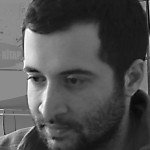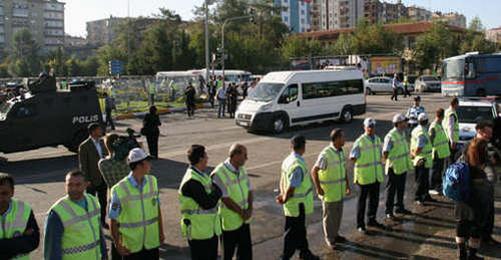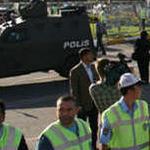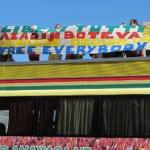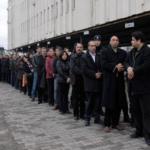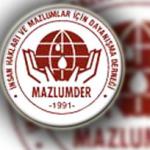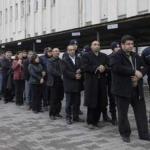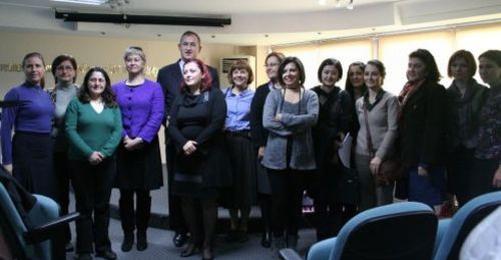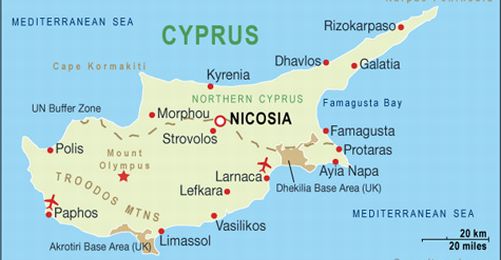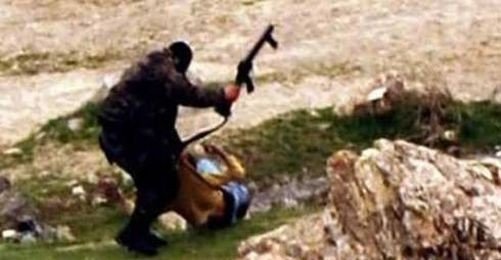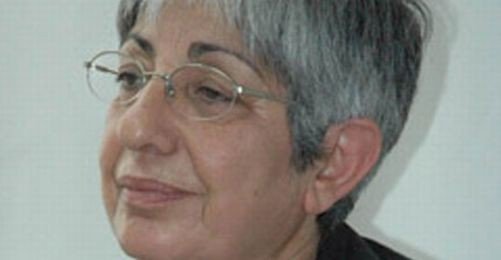Almost 2,000 people gathered in front of the Diyarbakır Courthouse from the morning onwards on the day of the first hearing regarding the "KCK trial". Many of the151 defendants were taken to court for the first time after 552 days in detention. The protesting crowd outside the courthouse shouted slogans against the trial and performed an Anatolian folk dance.
The area of the courthouse is completely marked off by the police. The protestors blocked the road in front of the courthouse, no cars were allowed apart from ambulances. The riot force police set up a barricade in front of the crowd and brought out armed combat cars. Emotions were running high in the area, but other parts of the south-eastern city remained quiet. Special operation task forces positioned police vehicles at the airport and major junctions.
International focus
Reason for the tension is the beginning of the so-called "KCK trial" on Monday, 18 October, before the Diyarbakır 6th High Criminal Court. The trial against 151 defendants, 103 of whom are detained, is also in the focus of international organizations. A group of around 200 observers came to Diyarbakır, among them diplomats and lawyers from EU member states and rights advocators from several unions. The International Human Rights Federation (FIDH) and the Joint Platform for Human Rights requested a fair trial for the defendants.
Kurdish politicians, local executives and rights defenders stand accused of membership of the Democratic Confederation of Kurdistan/Turkish Assembly (KCT/TM) as the urban organization of the PKK, the militant Kurdistan Workers Party. Among the defendants are 28 executives of the dissolved pro-Kurdish Democratic Society Party (DTP), twelve mayors including Osman Baydemir, Metropolitan Mayor of Diyarbakır, two Chairs of Provincial Assemblies and two municipality council members and the Branch President of the İHD Diyarbakır, Muharrem Erbey.
Souhayr Belhassen, Head of the Paris-based FIDH, said in a statement, "We will monitor the trial with a special view on personal freedom and security and the right to a fair trial. Once more we reiterate our request for justice for everybody".
About 300 defence lawyers are involved in the case. 16 journalists and 50 spectators were allowed into the court room. Another 500 people were waiting at the municipality building during the hearing.
Defence speeches in Kurdish?
In the first hearing, the defendants requested permission to deliver their defence speeches in Kurdish as their mother tongue.
The defence lawyers furthermore suggested not to read out the complete indictment which includes 7,500 pages but to hear a summary of the prosecutor instead.
The hearing was closed at around 5.00 pm and the decisions of both requests were left for the following day.
"Lengthy indictment constitutes violation of right to defence"
In an interview with bianet, lawyers Ayşe Batumlu and Sezgin Tanrıkulu summarized the hearing in the morning. They said that defence lawyer Mehmet Emin Aktar, President of the Diyarbakır Bar Association, and Öztürk Türkdoğan, Head of the Human Rights Association (İHD), requested to refrain from reading the whole indictment in order to save time.
Aktar emphasized that some of the defendants have been detained for 18 months and that the indictment was first given to press before it was forwarded to the defendants. He furthermore criticized that they only had four months to read through the 7,500 pages of the indictment. Aktar pointed to a violation of the right to defence due to the length of the indictment. Türkdoğan highlighted the fact that the court apparently managed to read through the lengthy document within nine days.
Joint attorney Ercan Kanar put forward that the indictment included many breaches of the law, for instance demonstrations shown as evidence which had actually be the subject of previous trials. Moreover, the membership of the South-East Anatolia Municipalities Association was accounted a crime as well as activities such as attending the association's meetings.
Voice records of the hearing
The hearing was voice recorded so there were no written records taken. This helps to make the trial proceed at a quicker pace.
Crammed court room
The morning session was closed at 12.30 pm. In the beginning, only 130 lawyers were allowed to the court room because of limited space. However, the lawyers who had to stay outside objected. After a short tension all lawyers entered the courtroom upon the order of the Court President.
Only two defendants were absent, all other persons on trial attended the hearing. (EÜ/TK/VK)




